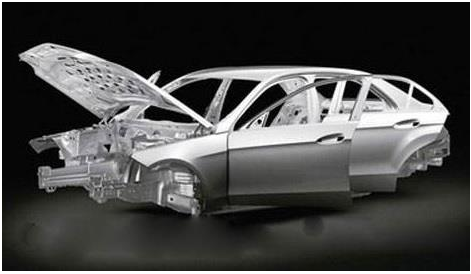In the world of aerospace manufacturing, precision is paramount. The aerospace industry demands components that are not only strong and durable but also lightweight and aerodynamic. This is where aerospace casting comes into play. Aerospace casting is a process that involves pouring molten metal into a mold to create complex and intricate shapes used in aircraft and spacecraft. With advancements in technology and materials, high-precision aerospace casting has become an essential part of the future of aerospace engineering.
One of the key reasons why aerospace casting is gaining popularity is its ability to produce components with a high level of accuracy and detail. The process allows for the creation of intricate designs and complex geometries that would be difficult or impossible to achieve through other manufacturing methods. This level of precision is crucial in the aerospace industry as even the smallest design flaw can have catastrophic consequences. Aerospace casting ensures that every component meets the strictest quality standards and can withstand the extreme conditions of space or high-altitude flight.
Another advantage of aerospace casting is its ability to produce lightweight components without compromising strength. In aerospace, weight reduction is a critical factor in improving fuel efficiency and performance. By using lightweight materials such as aluminum and titanium, aerospace castings can significantly reduce the overall weight of an aircraft or spacecraft without sacrificing structural integrity. This not only allows for increased payload capacity but also translates to reduced fuel consumption and emissions.
Furthermore, aerospace casting is a cost-effective manufacturing method that offers economies of scale. The ability to produce multiple complex components simultaneously reduces production time and lowers the overall cost of manufacturing. Additionally, the use of reusable molds and the ability to recycle excess materials further contribute to cost savings. As the aerospace industry continues to grow and demand for aircraft and spacecraft increases, the cost-effectiveness of aerospace casting becomes even more significant.
One area where aerospace casting has made significant advancements is in the development of new materials. Traditional aerospace castings were primarily made from metals such as aluminum and titanium. However, with the advent of new alloys and composites, aerospace castings can now be produced with even greater strength-to-weight ratios. For example, the use of advanced superalloys, such as nickel-based alloys, allows for components that can withstand extreme temperatures and pressures. This opens up new possibilities for space exploration and high-speed aircraft design.

Moreover, the aerospace industry has been exploring the use of additive manufacturing, also known as 3D printing, in the casting process. Additive manufacturing allows for the creation of highly complex and customized components through layer-by-layer deposition of material. This technology has the potential to revolutionize aerospace casting by reducing waste, increasing design flexibility, and shortening production cycles. The combination of additive manufacturing and aerospace casting has the potential to push the boundaries of what is possible in aerospace engineering.
In conclusion, aerospace casting is a critical component in the future of aerospace engineering. Its ability to produce high-precision, lightweight, and cost-effective components makes it an indispensable manufacturing method for the aerospace industry. With advancements in technology and materials, aerospace casting continues to evolve, offering new possibilities for space exploration, improved fuel efficiency, and increased performance. As the aerospace industry continues to grow and innovate, the importance of aerospace casting in shaping the future of flight cannot be overstated.
-

- بچے کی پش بائیک کے لیے میگنیشیم الائے موٹر سائیکل کے پرزے اور اجزاء
-

- Magnesium thixomolding parts UAV housing
-

- میگنیشیم الائے تھیکسومولڈنگ ڈائی کاسٹنگ UAV پارٹس
-

- OEM high pressure die casting magnesium alloy wheel for e-bike
-

- Magnesium alloy thixomolding die-casting UAV parts C
-

- Thixomolding parts & components mobile phone middle board processed

 0086-750-5616188
0086-750-5616188 +86 13392089688
+86 13392089688 sales@zhongmei-tech.com
sales@zhongmei-tech.com







